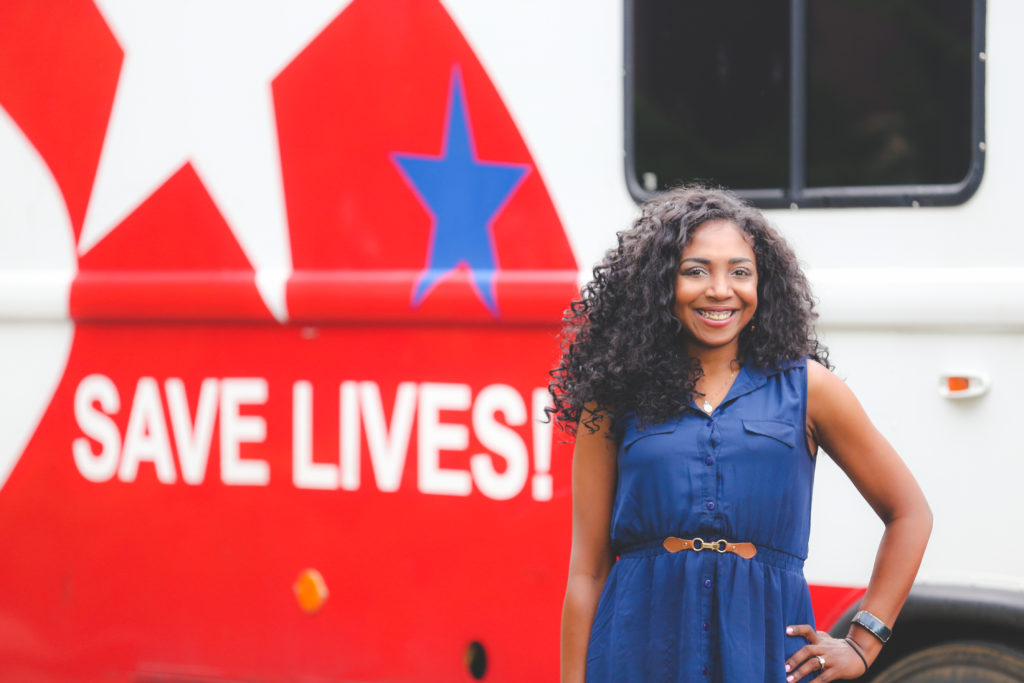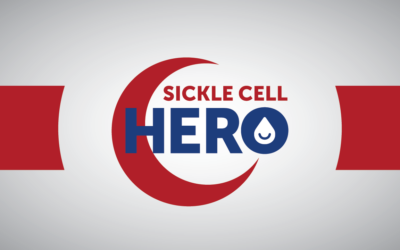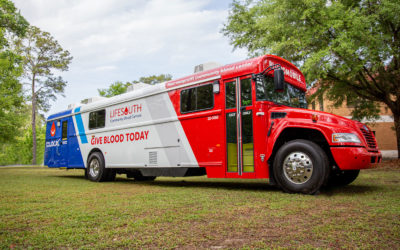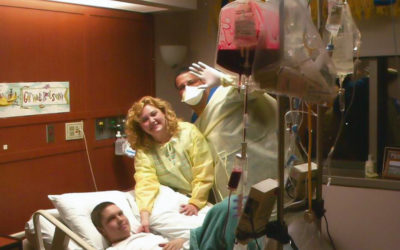One in every 365 African American babies are born with sickle cell disease. These children depend on lifesaving donors to give them a fighting chance. The children’s hospitals LifeSouth serves are the leading sources of care for children with this disease. The doctors, nurses and children there battle the effects of sickle cell disease 365 days a year, and so does LifeSouth.

Lydia Mays is from Birmingham, Ala. She‘s only 35-years-old and has had around 500 blood transfusions. Lydia was diagnosed with Sickle Cell Anemia when she was two months old after her mom heard her scream in a way that was “completely unnatural and unheard of” and rushed her to the hospital.
“I’ve heard that the screams of an infant during a sickle cell crisis are screams that nobody is prepared to hear,” Lydia said. Lydia is the only person in her family with Sickle Cell, which is uncommon since it’s a genetic disease.
Her first crisis started out in her feet and it felt like she had a small cramp. “In about 20 minutes it went from a cramp to a throbbing to a stabbing to where it felt like my feet were on a railroad track and a train was just going over them,” Lydia described. “It’s every second. It just doesn’t stop.”
During her first crisis she asked the E.R. doctor if they were going to have to amputate her feet and he said “No, sweetie, why would you think that?” She told him, “Because I want you to.”
“The only thing that can prevent a crisis or bring a person out of a crisis is blood donation,” Lydia explained.
The first time she received a blood transfusion she was in a sickle cell crisis for seven days and needed four transfusions. She explained that when your blood count starts going down you start to feel more lethargic, more tired, not like yourself. You don’t want to do anything.
“None of the things that interest you really have a meaning anymore because you’re just so tired,” Lydia said. “Walking becomes a struggle, talking becomes a struggle, even holding a fork to feed yourself becomes a struggle. That’s what it feels like before the blood transfusion.”
During her first transfusion, Lydia felt so good she started doing the M.C. Hammer dance while receiving blood. She described the feeling as an immediate rush of energy.
“You just start to feel more like yourself,” she said. “It made me want to do the things that I love to do.”
Lydia is thankful she lives in America and is fortunate enough to have blood readily available to her when she needs it. A Pilipino nurse told her that the technology in the Philippines is not as advanced as technology in the United States, and most people with Sickle Cell Anemia end up passing away at 14 or 15-years old because they don’t have access to blood.
“LifeSouth’s always going to be a part of my heart because you all do something that’s so so important and you give me life,” Lydia said. “Without you guys, I wouldn’t be here.”
Sickle cell patients can require blood transfusions for a number of reasons. The blood vessel blockages caused by sickle cell disease can cause life-threatening complications like pneumonia or stroke. Red blood cell transfusions greatly decrease the risk of these complications. Patients often need regular transfusions of antigen-matched blood, which could mean receiving blood every one to three months for many years. Very few donors, however, have the antigen profiles needed to match to sickle cell patients. When a donor gives with LifeSouth, their blood is tested for an antigen match with Sickle Cell patients. When a donor-patient match is identified, LifeSouth will contact the donor to encourage them to continue to give throughout the year.
LifeSouth’s 365 Movement encourages potential donors to give blood and find out whether they are a Sickle Cell Hero and works with organizations to schedule regular blood drives to help provide the blood that is essential to sickle cell patients. You can help members of your community who are struggling with Sickle Cell disease. Join the movement! Please stop by one of our donor centers or visit lifesouth.org to find a blood drive near you.
Blood donors must be at least 17 (16 with parental permission), weigh at least 110 pounds and be in good health. A photo ID is also required. For more information on donating blood, call toll-free 888-795-2707 or read our FAQs.



